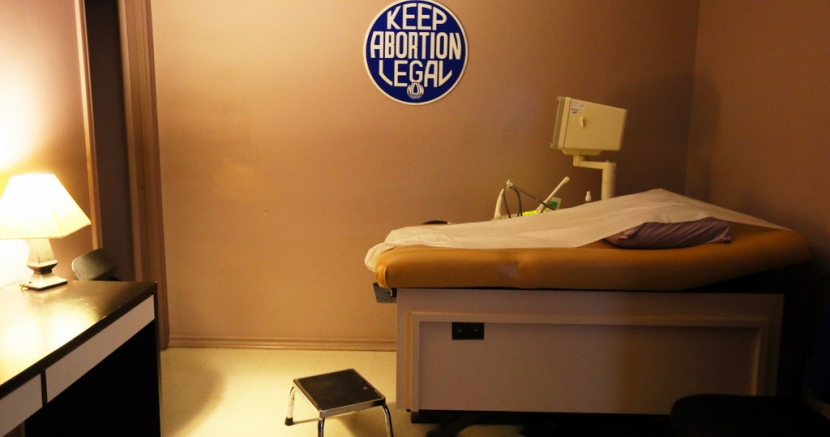Harmful Impact of Texas Abortion Restrictions Confirmed: Increased Wait Times, Delayed Care

Ed. note: this blog is cross-posted from the Texas Research Institute.
Independent research confirms that Texas is already seeing the harmful consequences reproductive rights organizations warned would happen following the passage of draconian anti-abortion legislation, leaders of those organizations said today. A new study from the Texas Policy Evaluation Project (TxPEP), released on Monday, reveals that widespread clinic closures are substantially increasing wait times for abortions, pushing women seeking abortion care later into their pregnancies.
Nan Little Kirkpatrick, executive director of the Texas Equal Access Fund, an organization that provides financial assistance for abortion said, “Access to abortion shouldn’t depend on where a person lives or how much money they have, but this is the Texas we live in today. If a person is traveling from Lubbock to Fort Worth and facing waiting periods of 20 days or longer, the level of financial and life stress caused by the combination of finding time off of work, the cost of travel, finding childcare, and the higher cost of a second trimester procedure will put abortion completely out of reach for thousands of Texans.”
Tina Hester, executive director of Jane’s Due Process states, “Such extensive wait times push a minor further into her pregnancy, creating dangerous circumstances in homes where teens are experiencing family violence. Additionally, the cost of the procedure rises significantly when the pregnant teen is forced to wait until the second trimester, placing a tremendous financial burden on a teen who lacks family support.”
Holly Benavides, member of the Board of Directors of the Lilith Fund for Reproductive Equity, an abortion fund providing financial assistance to Texas residents in central, south, west and east Texas, stated, "House Bill 2 has had disastrous effects on access to reproductive health care for people in Texas—especially for Lilith Fund clients in South Texas and non-metropolitan areas of our state. An increase in the wait time for an abortion means greater costs, and will effectively put safe and legal abortion care out of reach for some—especially those disproportionately impacted by income disparity, racism, immigration status, geography, and other barriers.
Natalie St. Clair, operations manager of Fund Texas Choice, an organization providing transportation assistance, shared the struggles of one of their clients, "This morning I had a conversation with a woman who wanted to make an appointment at an Austin clinic last week, but all had waiting times of more than two weeks. This wait would put her past 22 weeks of pregnancy, when no Texas clinic would be able to see her. Instead she is planning a trip to Albuquerque next week. We'll have to plan out every detail so she can take off work, find childcare, book a hotel and a plane for what will be a 6-day trip out of state, all to access an abortion she wanted to get last week at a clinic 45 minutes from her home."
The research from TxPEP reveals the impact House Bill 2, a Texas law that has already forced more than half the state’s abortion clinics to close since it was passed in 2013, has had on wait times for an abortion. TxPEP found that wait times for an abortion went up to 23 days at clinics in Austin and Fort Worth.
Organizations working in the field are already seeing the impact of the clinic closures. These groups include the Texas Equal Access Fund, The Lilith Fund, Whole Woman’s Health, ACLU of Texas, Texas Research Institute, Texas Freedom Network, National Latina Institute for Reproductive Health, Jane’s Due Process, Fund Texas Choice, Frontera Fund, West Fund, NARAL Pro-Choice Texas and Shift.
DONATE
Your donation supports our media and helps us keep it free of ads and paywalls.








